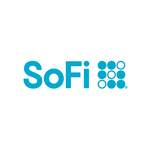FinTech Futures: Top five stories of the week – 20 October 2023
Here’s our pick of five of the top news stories from the world of finance and tech this week.
US payments start-up Braid winds down operations
Five years after it was first founded, Braid co-founder Amanda Peyton has confirmed that the consumer payments start-up has ceased operations, despite raising nearly $10 million in funding and processing monthly payment volumes in excess of $10 million as of Q4 2022.

Braid shuts down operations
The San Francisco-based company specialised in multi-user financial accounts that enabled users to pool together funds, send and request money from different accounts and set up spending controls, among its other features.
In a recent blog post, Peyton cites the current turbulent macroeconomic conditions as the cause of its closure, but says that the “final nail in the coffin” came when “a critical third-party informed us that they’d changed their mind on a key technical decision”, right when it had signed a term sheet for a new round of funding.
“This change was going to break all our software,” she explains. “We had two decisions: rebuild over from zero or shut it all down. It didn’t feel right to take additional capital knowing that we’d have to rebuild, again, so we called off the round.”
Australia proposes significant regulatory reforms for digital asset platforms
The Australian Treasury has proposed a new regime that would bring digital asset platforms within the scope of the Australian Financial Services Licence (AFSL) framework.
The proposals specifically aim to tackle “consumer harms” associated with digital assets, which the government says have been perpetuated by ineffective management practices, inadequate governance structures, poor operational resilience, widespread conflicts of interest and instances of fraudulent activities.
To mitigate these risks, the proposed regime encompasses four core amendments to current legislative procedures, including the scope of licensing, facility contracts and additional regulations for digital assets that are not specifically designated as financial products.
The Treasury is currently welcoming feedback on its latest publication until 1 December 2023, and is not expected to release its exposure draft legislation until next year.
UAE’s central bank launches new instant payments platform Aani
The Central Bank of the UAE (CBUAE), via its subsidiary Al Etihad Payments, has launched a new instant payments platform which it says will “transform the landscape of digital payments” in the country.

UAE’s central bank launches Aani
Aani, available through its partner financial institutions and as a mobile app, enables transactions to be processed “instantly and securely” at any given time.
The platform gives customers the ability to split bills and transfer money using just phone numbers, while also enabling businesses to accept payments using QR codes.
Eight of the country’s licenced financial institutions are participating at launch, including Abu Dhabi Commercial Bank, Al Fardan Exchange, Emirates NBD and Finance House, with the central bank intending to onboard “tens of thousands” of merchants in the coming months.
The new instant payments system forms part of CBUAE’s Financial Infrastructure Transformation (FIT) programme, which was launched in February this year to accelerate digital transformation in the country’s financial sector.
National Bank of Greece deploys Infosys Finacle core banking system
National Bank of Greece (NBG) has successfully deployed its new core banking system from Infosys Finacle.
The deployment forms part of the bank’s core banking replacement project ‘Cosmos’. In its first phase, the new cloud-native platform will power all of the bank’s corporate and SME loan operations and will see the migration of about 60% of NBG’s overall loan book, with a full replacement of the bank’s back-end.
The project will further include implementation of the Finacle solution to cover retail loans and accounts.
Saga taps cash deposit platform Flagstone to launch over-50s savings platform in the UK
Saga, a UK-based provider of insurance and financial solutions for consumers over the age of 50, has partnered with cash deposit platform Flagstone to launch a new fintech-powered savings platform.

Saga taps Flagstone for over-50s savings platform
The Saga Savings Platform seeks to connect customers over the age of 50 to a “curated choice” of fixed-rate accounts in order to help them build the earning potential of their savings.
These accounts will offer terms ranging from one month to seven years, and powered by Flagstone’s technology and network of cash savings providers, enables customers to launch and maintain accounts with a reduced requirement for manual effort, while transactional data is aggregated into one interest statement.
Saga’s in-house research cites a “significant demand” across this demographic for “competitive savings rates, convenience and reduced paperwork”, a particularly poignant finding considering the rebound of cash deposit options as a result of the current high interest rate environment.









































